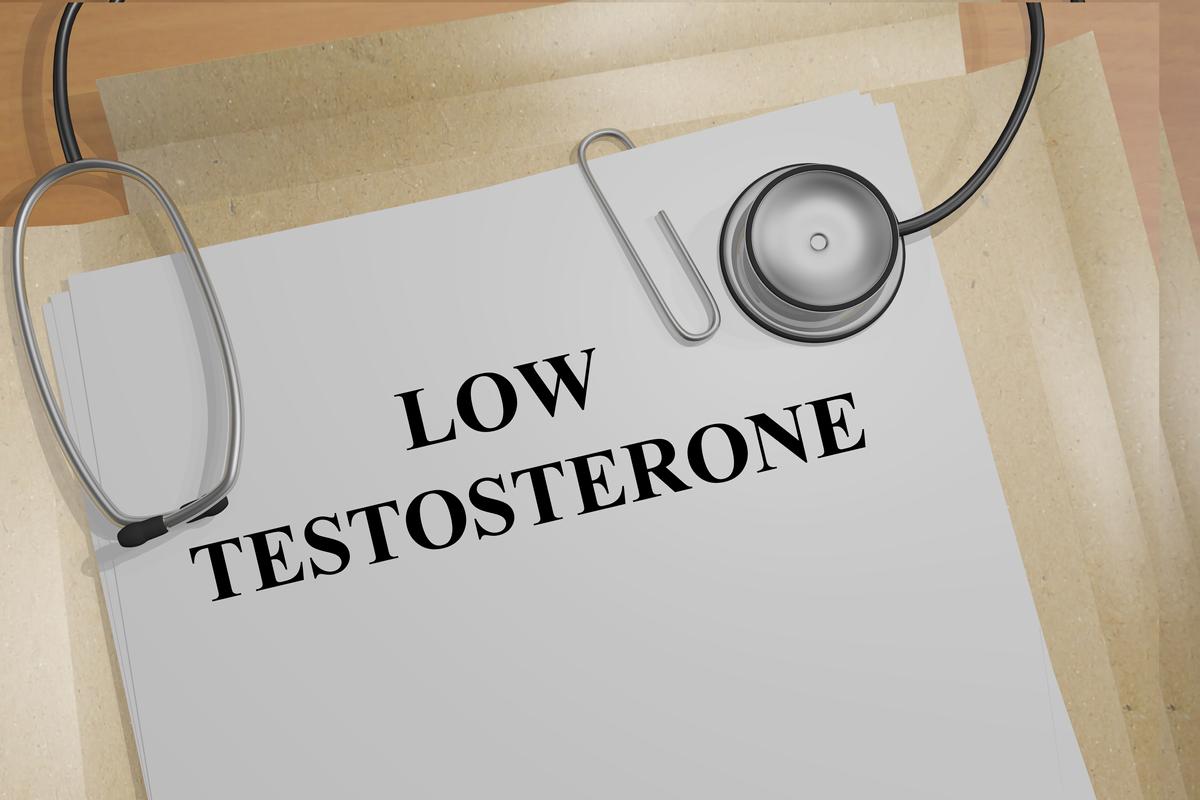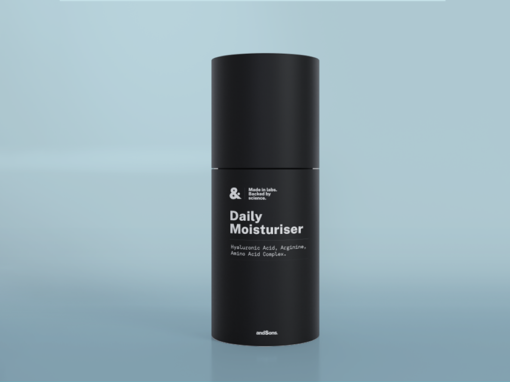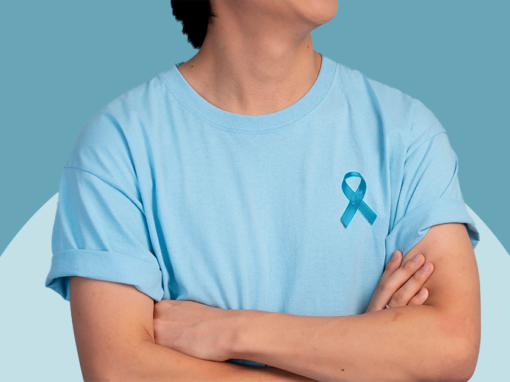Are you feeling sluggish and fatigued? You could be suffering from low testosterone. Low testosterone is a condition that can affect men at any age but is particularly common in males after age 30. In fact, it has been found that there is a decline of about 1% per year after age 30. Many symptoms can indicate low testosterone levels. Common signs of low testosterone include reduced energy levels, low sex drive or physical strength, difficulty sleeping or depression.
Recognising the symptoms of low testosterone is the first step to identifying if you should consider treatment options. This article will discuss male hypogonadism, what causes low testosterone in men, and the treatment of this condition.
What is low testosterone?
Low testosterone, or Low T, is a condition in which an individual has below-normal testosterone levels. Testosterone is the primary male sex hormone, it plays a key role in many bodily processes including growth and development, muscle mass, bone density, libido, and fertility. Low T causes men to experience symptoms such as decreased energy levels and libido, fatigue, and depression. Testosterone levels naturally decline with age, but other conditions or lifestyle choices can cause low T.
Symptoms of low testosterone
Low testosterone level symptoms can vary, but the most common signs include:
1. Reduced energy levels
Testosterone is an important hormone in the body that helps to regulate energy levels. Men with low levels of testosterone may notice a decrease in energy and motivation to pursue activities that once gave them joy. They may also experience fatigue, tiredness, and difficulty concentrating on tasks. Physical activity may become increasingly difficult as they struggle to find the motivation to exercise or engage in physical activities.
2. Decreased libido
Testosterone plays a major role in libido. It is responsible for stimulating the production of endorphins, which are hormones that act as a neurotransmitter and increase pleasure, desire and energy in the body. Testosterone levels peak during puberty but can decline with age or due to certain medical conditions. Low testosterone levels can be associated with decreased libido, erectile dysfunction and low sperm count in men.
3. Depression
Testosterone has been found to play a role in regulating moods and cognition, making it possible to experience positive emotions more intensely or negative emotions less severely. Low testosterone levels may be linked to difficulty concentrating, feeling irritable or discouraged, fatigue or lack of energy, losing interest in activities once enjoyed, difficulty sleeping, and even suicidal thoughts.
4. Sleep disturbances
Testosterone helps regulate circadian rhythms which are our body’s built-in 24-hour clock that tells us when it is time to sleep and when it is time to wake up. This means that people with higher testosterone levels tend to have more consistent sleeping patterns than those with lower levels as their bodies are better able to discern between day and night cycles. In addition, testosterone also affects our deepest stage of sleep called slow-wave sleep, which is when we experience the most restorative sleep and our bodies heal. Studies show that higher testosterone levels result in longer periods of deep sleep.
5. Physical symptoms
Testosterone works to regulate a number of functions in the body. It achieves this by sending signals to cells, helping to produce certain hormones, and stimulating tissues throughout the body. And when hormones are out of balance or levels become too low, physical symptoms can occur. Low testosterone can affect many different areas of the body and can cause physical symptoms such as enlarged prostate, muscle loss, increased body fat, reduced bone density, and decreased sex drive. Additionally, low testosterone can cause a weakened immune system.
What causes low testosterone?
If you’re wondering what causes low testosterone in young males, keep reading to find out.
1. Chronic health conditions
Certain chronic medical conditions can affect the body’s production or utilization of testosterone. Conditions such as obesity, kidney disease, diabetes, and liver disease can all lead to low T levels. Chronic illnesses such as HIV/AIDS, cancer, and autoimmune diseases can also reduce male hormone levels.
2. Medications
Certain medications, such as corticosteroids and chemotherapy drugs, can interfere with testosterone production and utilization. Other medications, such as anabolic steroids, can also lead to low testosterone levels in men. Additionally, male hypogonadism – a condition that affects male hormone production and utilization – can be caused by certain medications.
3. Injury or trauma
An injury to the testicles can cause a decrease in testosterone levels. Surgery to remove the testicles (orchiectomy) will also result in low T levels. Additionally, head trauma or spinal cord injuries can affect male testosterone levels.
4. Stress
Chronic stress can increase the hormone cortisol, which can interfere with testosterone production. Stress can also lead to increased alcohol consumption, poor diet, and lack of sleep, all of which can contribute to low T levels.
5. Aging
As men age, testosterone naturally declines. This can cause symptoms such as fatigue, poor sleep, and low libido. It is important to note that Low T can be caused by natural aging and other medical conditions.
How to treat low testosterone?
There are treatments for low testosterone including lifestyle changes and hormone replacement therapy (HRT). Let’s discuss them in detail.
1. Lifestyle changes
Making small changes to your lifestyle can help improve symptoms of low T. Eating a balanced diet, regular exercise, and reducing stress levels can help boost testosterone levels naturally. Additionally, quitting smoking and limiting alcohol consumption can help improve male hormone levels.
2. Hormone replacement therapy (HRT)
HRT is the most common treatment for male hypogonadism. This can help improve symptoms such as fatigue, low libido, and depression. It is important to speak with your doctor before beginning any form of hormone replacement therapy, as there are potential side effects and risks associated with HRT.
It is vital to understand the causes of low testosterone and how to recognize the signs and symptoms. If you think you may suffer from male hypogonadism, consult your healthcare professional for an accurate diagnosis and treatment plan.
3. Testosterone supplements
There are several testosterone supplements available that claim to increase testosterone levels naturally. It is essential to talk to your healthcare provider before taking any testosterone supplements or hormones, as the wrong treatment can lead to serious health risks.
4. Medications
Certain medications may be prescribed to help increase testosterone production or block the conversion of testosterone into estrogen in the body. These include clomiphene, anastrozole, and human chorionic gonadotropin (HCG) injections. Discussing any medications with your healthcare provider before taking them is important.
5. Testosterone injections
Testosterone injections are a commonly used method for treating male hypogonadism. These injections can help improve symptoms such as fatigue, lack of energy, and low libido. Speak with your medical professional if you think testosterone injections may be right for you.
There are several causes and treatments for male hypogonadism which should be discussed with your healthcare provider. By understanding the underlying cause of low testosterone, proper treatment can be tailored to each individual’s needs.
Additionally, lifestyle changes such as exercising, eating a healthy diet, and reducing stress levels can help improve male hormone levels naturally. Finally, certain medications may be prescribed to help increase testosterone production or block the conversion of testosterone into estrogen in the body.
Conclusion
Low testosterone is a common condition that can cause various symptoms in men. The most common symptoms include low libido, fatigue, and depression. Treatment options vary depending on the condition’s cause but may include lifestyle changes, hormone replacement therapy, or medications. Moreover, low T can be treated effectively when the right treatment plan is put into place. If you are experiencing symptoms of male hypogonadism, it is important to look for a good and well-recognised and get in touch with a healthcare professional, so that they can help find the best treatment option for you.
FAQs About Low Testosterone
1. Can low testosterone be prevented?
Low testosterone can be prevented by lifestyle changes such as eating a balanced diet, exercising regularly, and reducing stress levels. Other preventive measures include avoiding certain medications that may interfere with male hormone production and utilization or avoiding contact sports that may cause injury to the testicles. Additionally, maintaining a healthy body weight can help prevent male hypogonadism.
2. What happens if low testosterone is untreated?
If left untreated, male hypogonadism can lead to several health issues, such as an increased risk of depression and cardiovascular disease. In addition, symptoms such as fatigue, erectile dysfunction, and low libido may become more severe and difficult to manage. Therefore, it is important to seek treatment if you think you may have low testosterone.
3. Can low testosterone cause Erectile Dysfunction?
Low testosterone can often lead to erectile dysfunction as it reduces male libido and sexual performance. ED is a common symptom of male hypogonadism and can be treated with lifestyle changes or medications such as testosterone replacement therapy.
4. How does low testosterone affect sex?
Low testosterone levels can lead to decreased male libido and sexual performance, making it difficult for some men to enjoy and maintain an active sex life. Symptoms such as fatigue, low energy, and depression can also contribute to a reduced interest in sex. Treatment options such as lifestyle changes or hormone replacement therapy may help improve male libido and overall sexual performance.
This article is for informational purposes only and does not constitute medical advice. The information contained herein is not a substitute for and should never be relied upon for professional medical advice. Book a consultation with andSons Singapore’s medical team to learn more about prostate supplements and other well-being treatments here.


